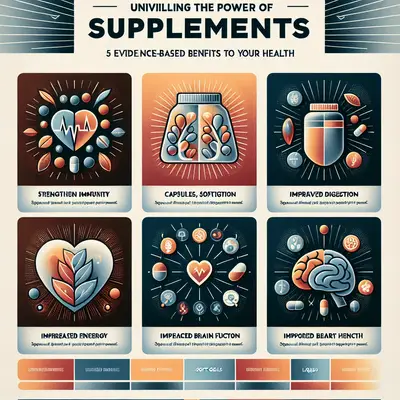1. Lion's Mane Mushroom
Lion's Mane Mushroom is a type of medicinal mushroom that has been gaining recognition for its vast array of health benefits. Research has shown that it promotes the growth of nerve cells, which can potentially enhance cognitive functions like memory and concentration. Additionally, it also has anti-inflammatory and antioxidant properties that may support immune health.
2. Ashwagandha
A staple in Ayurvedic medicine, Ashwagandha is a powerful adaptogen known to help the body manage stress. Studies have found that it can significantly reduce cortisol levels, the body's primary stress hormone. Furthermore, it may also improve brain function, boost mood, and support thyroid health.
3. Spirulina
This blue-green algae is a nutrient powerhouse. Packed with vitamins, minerals, and both essential and non-essential amino acids, Spirulina is a high-quality plant-based protein. It also has strong antioxidant properties and can help reduce inflammation, lower cholesterol levels, and boost immune function.
4. NAC (N-acetyl Cysteine)
NAC is an amino acid that is used by the body to produce glutathione, a powerful antioxidant. It aids in detoxification, supports respiratory health, and has been found to have potential benefits in treating mental health disorders like obsessive-compulsive disorder (OCD) and bipolar disorder.
5. PQQ (Pyrroloquinoline Quinone)
PQQ is a micronutrient that supports mitochondrial health, leading to improved energy levels and cognitive function. It also exhibits potent antioxidant properties, reducing oxidative stress and inflammation, and may have potential benefits for heart health and sleep quality.
Conclusion
As we step into a new era of wellness, it's important to explore and embrace these emerging health supplements. Their unique properties and potential health benefits could be key to shaping a healthier future. Always remember, however, that supplements should complement a balanced diet and healthy lifestyle, not replace them. Before starting any new supplement regimen, it's always best to consult with a healthcare professional.



